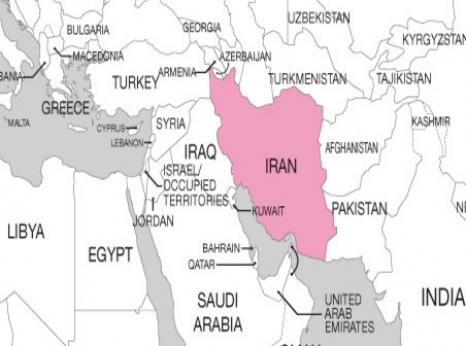Iran: Ill Prisoner Denied Healthcare For Years

In May 2011, Kamal Sharifi waged a hunger strike to protest the denial of his visitation rights. On the 48th day of his hunger strike, the authorities allowed him to have a visit with his family for the first time since his arrest. The visit took place in the presence of intelligence officials who banned him from speaking to his mother in Kurdish. He ended his hunger strike six days later in July 2011. Soon afterwards, he suffered a stroke. He continues to suffer from the long-term effects of both his prolonged hunger strike and stroke, including gastrointestinal complications, facial numbness, gum recession and muscle weakness, for which he has not received adequate medical care. In a letter written from inside prison on 21 March 2021, Kamal Sharifi wrote: “I have submitted more than 20 requests for leave to the prosecutor, the head of the department of justice and judicial officials in the provinces of Hormozgan and Kurdistan, but they have been ignored… For 13 years, I have been suffering with gastrointestinal illness while eating poor quality food in prison. After 13 years of imprisonment and internal exile with no family visits and suffering stroke and heart attack… enduring further psychological pressure… has become difficult and intolerable.”
Kamal Sharifi was arrested in Saqqez, Kurdistan province, on 25 May 2008 during an armed confrontation which occurred when ministry of intelligence agents raided the hiding place of a group of individuals, including Kamal Sharifi, who were allegedly affiliated with an armed Kurdish opposition group, the Kurdistan Democratic Party – Iran (KDP-I) and had irregularly entered Iran from the Kurdistan Region of Iraq shortly before the incident. According to the court verdict of Kamal Sharifi, which has been reviewed by Amnesty International, he maintained during his trial that he did not fire any weapons during the incident. Following his arrest, Kamal Sharifi was transferred to a detention centre controlled by the ministry of intelligence in Sanandaj, Kurdistan province, where he was held in solitary confinement, without access to his family and lawyer, for six months. During this period, he says ministry of intelligence agents repeatedly tortured him while blindfolded, including with beatings, electric shocks, painful stress positions and shackling, to force him to “confess” before a video camera that he had been involved in armed activities attributed to the KDP-I. Kamal Sharifi says that as a result of torture that he suffered, he continues to experience pain in his joints. He has not received any medical care for these chronic injuries and has simply been left to use regular painkillers.
In December 2008, the Revolutionary Court of Saqqez convicted Kamal Sharifi of “enmity against God” (moharebeh) through “armed rebellion” and membership in the KDP-I and sentenced him to 30 years’ imprisonment. The court ruled that he must serve his entire prison sentence in “exile” in Minab prison in southern Iran, which is around 1,600km away from the north-western city of Saqqez where his family live. The court further relied on article 193 of the Islamic Penal Code of 1991 to rule that “while serving his sentence, he shall be denied the privileges of prison leave, visits and written correspondence with others.” This article states that those convicted of “enmity against God” who are exiled must be placed under supervision and have no interaction with others. Kamal Sharifi’s trial was grossly unfair; it lasted about five minutes and he says the judge did not allow him and his lawyer, whom he met for the first time at the trial, to exchange any words.
Prisoners in Minab prison suffer from overcrowding and bed shortages forcing many prisoners to sleep on the floor including in the prison corridors. Meals provided by the prison are low quality and contain very little nutrition. The prison clinic has just one bed and lacks adequate staffing and essential medical equipment; only one nurse (behyar) with limited medical knowledge is present 24 hours a day, and a physician visits once a week for a few hours. Clinic staff generally prescribe prisoners ordinary painkillers and antibiotics without addressing their underlying medical problems. Reports surfacing from Minab prison indicate that between March 2020 and March 2021, Covid-19 spread in the prison and several prisoners suspected to have been infected died in custody amid the refusal of prison authorities to transfer them to a medical facility outside prison. The vaccination of prisoners started around August 2021 and Kamal Sharifi and most other prisoners have since received two doses of Iran’s locally produced Covid-19 vaccine. Growing medical evidence, however, indicates that two doses are not sufficient for protection against severe illness, particularly for vulnerable individuals such as Kamal Sharifi who have serious pre-existing medical conditions.
Prosecution and prison authorities in Iran routinely deny prisoners access to adequate medical care, in many cases as an intentional act of cruelty intended to intimidate and punish them. Dozens of cases of suspicious deaths in custody with suspected links to the denial of medical care have been reported in recent years amid a crisis of impunity for violations of the right to life.